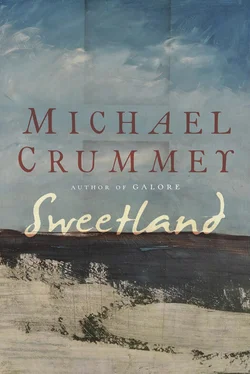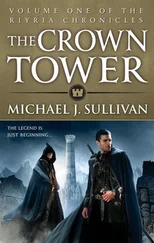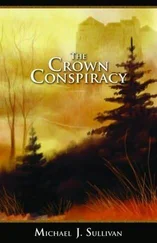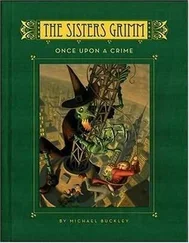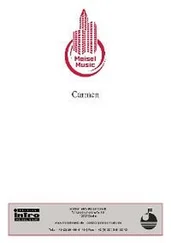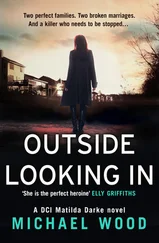I knows she idn’t.
She don’t mean what she’s saying.
I knows that, he said.
The day she died his mother woke occasionally to look around herself, dropping off again without seeing anything, but for one instance when she caught and held Sweetland’s face beside her. Where am I? she asked.
Home, maid, he said. In your bed.
She shook her head and stared up at the ceiling. She turned to him again, the motion so laboured it was hurtful to watch. She nodded toward him gravely. Who are you?
Moses, he said. Your son.
She shook her head again. I don’t know you, she said, and she closed her eyes.
He leaned in close, laying a hand over one of her twisted hands. Mother, he said, but she was already asleep. And dying among strangers, for all he tried to save her from it.
Sweetland woke to a disturbance he couldn’t place at first, an agitation in the air that he thought was part of the hangover he’d spent the previous night concocting. He climbed out of bed too quickly and had to steady himself with a hand to the headboard and before the dizziness passed he recognized the sound. A chopper in the distance, the wet whup whup whup approaching the island.
Sweetland pulled on his pants and the filthy shirt he’d worn the night before, stumbled out to the window at the end of the hall which faced the island’s north end. The Coast Guard helicopter was miles off when he caught sight of it, a speck in the blue, moving toward Burnt Head. A crew coming out for fall maintenance on the light. It disappeared behind the height of land as it descended and Sweetland made for the stairs, hands on the walls to keep his feet.
He pulled on his coat and boots in the porch, stepped back into the kitchen long enough to grab the rabbit’s head from the sink where he’d left it. He opened the main doors of the shed, pulled the tarp off the quad. Set the choke and turned the ignition, the motor rolling and falling flat, rolling and falling flat. Weeks since he’d used the machine and he flooded the engine in his panic to start it up, he could smell the fuel wafting up from the motor. He set off on foot instead, not sure there was enough gas to get him there regardless, not wanting to waste time. He went up the steep slope toward the mash, carrying the creature’s head by the strap of its ears. He stopped at the King’s Seat to catch his breath. A cold morning but he unzipped his coat, already sweating under the layers.
He walked past the remains of his bonfire, the thick coils of wire from the tractor tires orange with rust. He went through the gate to cut across Glad Vatcher’s meadow and before he made the other side it came clear to him he’d have been better to take out the ATV’s plugs and wipe them dry with a rag, tried the engine again. The Coast Guard had an hour’s work on the light at most. Even if there was some maintenance on the helipad or the ladder, he doubted it would keep them out there long enough. He swore up at the sky and then he swore at his boots.
Beyond the moss and tuckamore of the mash the trail moved into a rolling moonscape of granite where it skewed out toward the flat ground on the headlands, and for long stretches it ravelled within an arm’s length of that sheer drop. Sweetland was still feeling a slight vertigo hangover and he hugged the inner edge of the path, keeping his eyes on the cairns placed to show the way until he heard the helicopter start up, the static whine of the ignition. The tower of the old lighthouse was in sight when he raised his head, the slow beat of the blades making their first tentative revolutions beyond it.
He came over the rise and went down the path with his arms in the air, shouting uselessly into the racket. The chopper already airborne and over the open ocean when he rounded the corner of the keeper’s house, the air around him buffeted by the mechanical storm. He chased after it stupidly, stumbling down to the helipad. He stood at the centre of the platform, like the needle on a sundial, watching the helicopter until it had disappeared in the blue.
The wind faffered around him, picking at his clothes. He was suddenly hungry and cold, his shirt soaked through with sweat. He looked down at the rabbit’s head in his hand, curious as to why he’d carried it out here. It was meant to convince the Coast Guard crew of something, he knew, though it seemed a ridiculous prop now. He thought of how he would have looked to them, waving the foul thing, raving on about the mutilation of rabbits on his line, the head he’d found nailed to his stage door. The voice leading him out of the fog and the phantom chess game underway at Duke’s abandoned barbershop. He patted at his pockets distractedly, like he was looking for reading glasses or cigarettes. Almost relieved to have missed the crew. He walked to the edge of the pad and threw the rabbit’s head back into the ocean that had briefly surrendered it.
He turned to the lighthouse and the island then, started slowly up the rise. Sweetland walked along the front of the building where the plywood near the cistern had been reset with screws. All his materials, the dry clothes and food that he’d stored in the dark beneath the house locked away now, or confiscated. He thought to stop in at the tower to dry himself in the greenhouse warmth of the glass room but the door didn’t budge when he tried to open it. There was no lock on the latch and he stood looking at the closed door with his hands at his sides. Saw the fresh welts along the seams where the Coast Guard crew had torched it shut. A dozen spot welds around the frame. Sweetland ran his hand along the edge, the bump of each weld still warm from the acetylene.
The crew would make a report about the broken lock on the tower and the board removed from the skirting when they got back to St. John’s. Kids out from Fortune Bay on a weekend drinking spree, they’d put it down to. Vandalism and mischief. Cokeheads home from the Alberta oil fields, looking for trouble.
Not some lunatic geriatric holed up on his own out here. Losing his frigging mind.
He checked his slips on the way back along the mash, out of habit more than intention. There was a single animal in the snares and he carried it home by the feet, the animal’s ears brushing the ground as he went.
The dog was waiting near Diesel’s house and ran out to meet him as he came through the back of his property. “Now, Mr. Fox,” Sweetland said. “Where have you been hiding.” It waddled along on its back legs awhile, nosing the rabbit in Sweetland’s hand.
He went into the porch and paused there, looking back to see if the dog would follow. It stared at him, its head cocked, but didn’t come any closer. He left the door wide behind him, thinking the dog might change its mind eventually. He walked through the porch and stopped two steps into the kitchen. The butchered fish lay in its own gore on the counter, the muck of it running down the cupboard doors to the floor, bloody streaks dried to the wood. The black-and-white picture of his grandfather propped on the daybed.
Sweetland crossed to the stove and lit a fire, waited for the flame to take hold in the splits. Then he filled the woodbox until it was roaring. He set a pot of water on the stove and dug out a bucket from beneath the sink, splashed half a cup of Javex into the bottom. He scooped the remains of the codfish into two plastic bags, carried them out behind the shed. The dog following him and watching as Sweetland dug a hole to bury the mess, and he tamped the dirt down firm. Then he went back inside and sat beside the portrait of Uncle Clar to wait for the water to boil.
He spent what was left of the daylight hours scouring the kitchen. He scrubbed the floor with a brush and then mopped it, standing in the porch while he waited for it to dry. He stood on a chair to empty the shelves and wipe them down, and then he set about cleaning out the cupboard drawers. Lifted out the cutlery tray and stopped still when he saw the folded sheet of paper beneath it.
Читать дальше
